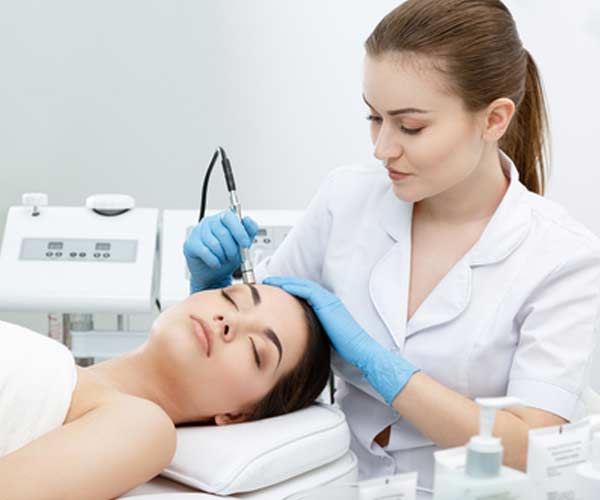How To Become An Aesthetic Nurse
By Dr. Stephen Cosentino
PRESIDENT OF EMPIRE MEDICAL TRAINING
- Dermal fillers
- Botulinum toxin injections (Botox®)
- Tattoo removal
- Laser skin treatment
- Hair removal
- Liposuction and other body contouring procedures
- Aesthetic surgeries such as scar removal
Steps to Become a Certified Aesthetic Nurse
Becoming a certified aesthetic nurse typically takes four to seven years from the day you enroll in nursing school until the day you pass your Plastic Surgical Nursing Certification Board exam and officially earn your certification. The exact time frame depends mainly on your nursing program (nursing degree type) and how long you work under a board-certified physician before taking your aesthetic nursing exam.Complete Your Nursing Degree
This is a crucial first step for anyone hoping to find a job in a nursing specialty, including aesthetic nursing. Aspiring aesthetic nurses have several degree options available to them. The most common are:- Associate’s degree in nursing: Known as an ADN, this two-year degree is a “basic” nursing certification and a prerequisite for working as a licensed nurse in the United States. ADN holders can find work as aesthetic nurses but typically have lower earning power and may find themselves underqualified for some jobs.
- Bachelor’s degree in nursing: Known as a BSN, this four-year degree is a “standard” nursing certification. BSNs command higher starting salaries than ADNs and may have more job opportunities available to them.
- Master’s degree in nursing: Known as an MSN (master’s of science in nursing), this five-year degree is increasingly favored by demanding employers. An MSN is not a terminal nursing degree — that’s a nurse practitioner (NP) degree — but MSNs nevertheless enjoy higher starting salaries and more career opportunities than either ADNs or BSNs.
Pass the NCLEX-RN and Gain Required Experience in a Core Competency
After completing your chosen nursing degree program, you must study for and pass the NCLEX-RN nursing exam. This licensing examination is required to become licensed to practice as a nurse anywhere in the United States. Passing the NCLEX-RN nursing exam does not make you a formally certified aesthetic nurse. Once you’re licensed to work as a nurse in the U.S., you’ll still need to gain two years of experience working under a plastic surgeon or other board-certified physician in one of the four core competencies for aesthetic nursing:- Plastic, aesthetic, or cosmetic surgery
- Dermatology
- Facial plastic surgery
- Ophthalmology
- Enroll in a physician-led aesthetician certification course or course package
- Network with physicians and nurse injectors you meet during training
- Keep your LinkedIn profile up to date and make it clear that you’re pursuing an aesthetic nursing certification
- Reach out informally to board-certified professionals who may be willing to have you intern (shadow) at their practice or create a position for you to gain the experience you need
Pursue Your Formal Aesthetic Nursing Certification
Only after gaining a minimum of two years of relevant practice experience can you take the final step in the process of becoming an aesthetic nurse. While it’s not required that you pursue a former aesthetic nursing board certification to work as a nurse in an aesthetic subspecialty, doing so affords you the optimal combination of earning power and career advancement potential. The Plastic Surgical Nursing Certification Board administers board certification exams for the two types of aesthetic nurse: Certified Plastic Surgical Nurse (CPSN) and Certified Aesthetic Nurse Specialist (CANS). To officially obtain one of these certifications, you’ll need to take and pass the appropriate certification exam.What Is an Aesthetic Nurse? And Other Questions Answered
It’s natural for aspiring aesthetic nurses to have questions about the field and its training and certification requirements. These are among the most common.What Is an Aesthetic Nurse? What Do Aesthetic Nurses Do?
Aesthetic nurses assist cosmetic surgeons and other aesthetic practitioners in their duties. Aesthetic nurses’ responsibilities can include:- Managing patient intake, including patient screening, interviews, and pre-treatment examinations
- Preparing equipment and medications for cosmetic procedures
- Assisting physicians and surgeons during cosmetic surgeries and treatments
- Performing minimally invasive cosmetic treatments, such as Botox and dermal filler injections, laser skin treatments, tattoo removal, and more
- Conducting follow-up visits and providing post-procedure care


